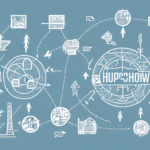Unlock the Benefits of UPS TradeAbility for Your Business
International shipping presents a myriad of challenges, from navigating complex customs regulations to managing tariffs and taxes. These obstacles can make global trade daunting for businesses of all sizes. However, UPS TradeAbility offers a comprehensive solution to streamline your international shipping processes. By leveraging this suite of tools, businesses can save time and money while enhancing efficiency and compliance. In this article, we explore the features, functionalities, and benefits of UPS TradeAbility, along with real-life success stories and practical tips for maximizing its potential.
What is UPS TradeAbility and How Does It Work?
UPS TradeAbility is a robust, web-based platform designed to assist businesses in managing the complexities of international shipping. It offers a range of tools for trade compliance, import and export management, and real-time shipment tracking. By integrating seamlessly with your existing logistics systems, UPS TradeAbility simplifies global trade operations, ensuring that your shipments comply with international regulations.
The platform empowers businesses to calculate duties and taxes accurately, verify product classifications, and assess compliance with export regulations. By integrating with UPS WorldShip, TradeAbility provides a unified interface for managing and tracking shipments in real-time. This integration enhances visibility and control over your supply chain, reducing the risk of delays and compliance issues.
One of the standout features of UPS TradeAbility is its ability to deliver real-time updates on shipment statuses. From warehouse dispatch to final delivery, businesses can monitor their shipments meticulously, ensuring transparency and timely interventions if needed. Additionally, the platform offers detailed insights into the customs clearance process, highlighting potential delays or issues that could impact delivery timelines.
Beyond compliance and tracking, UPS TradeAbility provides access to a wealth of resources related to international trade. Users can access information on trade agreements, tariffs, and regulations specific to various countries, enabling informed decision-making and strategic planning.
For more detailed insights and a comprehensive review of UPS WorldShip, visit the ShipScience UPS WorldShip Review.
Understanding the Features and Functionalities of UPS TradeAbility
UPS TradeAbility is equipped with a diverse set of features tailored to enhance international shipping operations:
- Trade Compliance: Ensure that all shipments adhere to customs regulations, export controls, and sanctions by classifying goods accurately, checking license requirements, and generating necessary shipping documents.
- Import Management: Streamline import processes with tools that provide information on landing costs, customs clearance, and tariff classifications.
- Export Management: Navigate regulatory compliance for international trade with ease, ensuring that all export activities meet legal standards.
- Real-Time Tracking: Monitor shipments from pickup to delivery, gaining full visibility into the supply chain and making informed decisions based on real-time data.
- Cost Calculation: Accurately estimate total shipment costs, including duties and taxes, to avoid unexpected expenses and budget more effectively.
- Trade Data and Analytics: Access comprehensive trade data to identify trends, optimize supply chain strategies, and make data-driven business decisions.
These features collectively enhance operational efficiency, reduce the risk of compliance issues, and provide businesses with the tools necessary to compete in the global market.
How UPS TradeAbility Can Streamline Your International Shipping Processes
UPS TradeAbility simplifies international shipping by centralizing key processes and providing essential tools:
- Documentation Management: Access a library of country-specific forms and documentation requirements, ensuring that all necessary paperwork is accurate and complete.
- Duties and Taxes Calculation: Automatically calculate applicable duties and taxes, speeding up the customs clearance process and reducing the likelihood of delays.
- Shipment Management: Create and print shipping labels, generate customs forms, and track packages in real-time from a single platform.
- Rate and Transit Information: Gain access to detailed shipping rates and transit times, allowing for informed decision-making regarding shipping options.
- Global Network Access: Utilize UPS's extensive global carrier network to ensure timely and secure delivery of packages worldwide.
- Customized Shipping Options: Tailor shipping preferences such as expedited shipping, insurance, and advanced tracking to meet specific business needs.
By consolidating these functions, UPS TradeAbility reduces the complexity and time required to manage international shipments, enabling businesses to focus on growth and strategic initiatives.
The Benefits of Using UPS TradeAbility for Your Global Business Operations
Adopting UPS TradeAbility offers numerous advantages for businesses engaged in international trade:
- Increased Efficiency: Automate repetitive tasks such as documentation and compliance checks, freeing up resources for other critical business functions.
- Enhanced Accuracy: Minimize errors in duties and taxes calculations, reducing the risk of costly penalties and ensuring compliance with international regulations.
- Real-Time Visibility: Monitor shipments throughout their journey, improving supply chain transparency and enabling proactive management of potential issues.
- Cost Savings: Accurately estimate and manage shipping costs, helping businesses maintain budgetary control and optimize financial planning.
- Improved Customer Satisfaction: Reliable and timely deliveries enhance customer trust and satisfaction, fostering long-term business relationships.
According to a UPS Industry Report, businesses that utilize comprehensive trade management tools like TradeAbility can reduce shipping errors by up to 30%, leading to significant cost savings and operational efficiencies.
How to Get Started with UPS TradeAbility for Your Business
Embarking on your UPS TradeAbility journey is straightforward:
- Sign Up: Visit the UPS website and create an account to access the TradeAbility suite.
- Integration: Connect TradeAbility with your existing logistics systems, such as UPS WorldShip, to streamline data flow and enhance shipment management.
- Training: Utilize the platform’s user-friendly interface and comprehensive instructions to familiarize yourself with its features and functionalities.
- Utilize Resources: Access a wealth of resources, including country-specific regulations and documentation requirements, to ensure compliance and optimize your international trade operations.
With its intuitive design and extensive support resources, UPS TradeAbility enables businesses to quickly integrate and begin reaping the benefits of streamlined international shipping.
Tips for Maximizing the Potential of UPS TradeAbility in Your Supply Chain Management
To fully leverage UPS TradeAbility and enhance your supply chain management, consider the following tips:
- Comprehensive Feature Utilization: Ensure that all available tools, such as duties and taxes calculators, customs form generators, and real-time tracking, are actively used to optimize shipping processes.
- Stay Informed: Regularly update yourself with the latest customs regulations and trade compliance requirements using the platform’s resources to maintain compliance.
- Data-Driven Decisions: Utilize trade data and analytics to identify trends, forecast demand, and make informed decisions that enhance supply chain efficiency.
- Continuous Training: Invest in ongoing training for your team to ensure they are proficient in using TradeAbility’s features, maximizing the platform’s potential.
- Feedback and Optimization: Collect feedback from your logistics team to identify areas for improvement and continuously optimize your use of TradeAbility.
By implementing these strategies, businesses can unlock the full potential of UPS TradeAbility, driving efficiency and growth in their international operations.
Real-Life Success Stories of Businesses That Have Benefited from Using UPS TradeAbility
Many businesses have successfully leveraged UPS TradeAbility to enhance their international shipping processes:
- Fashion Brand Expansion: A leading fashion brand utilized TradeAbility to manage its international shipments, simplifying documentation and compliance. This enabled the brand to expand its global footprint seamlessly, increasing international sales by 25% within the first year of adoption.
- Technology Company Supply Chain Improvement: A technology company improved its supply chain management by using TradeAbility to expedite customs clearance processes. This resulted in a 20% reduction in shipping delays and enhanced compliance with international trade laws.
- Healthcare Products Distributor: A distributor of healthcare products used TradeAbility to navigate complex import regulations, ensuring timely delivery of critical supplies and maintaining high customer satisfaction levels.
These success stories highlight the transformative impact of UPS TradeAbility on diverse industries, demonstrating its versatility and effectiveness in optimizing international shipping operations.
Frequently Asked Questions About UPS TradeAbility Answered
What is UPS TradeAbility?
UPS TradeAbility is a suite of web-based tools designed to help businesses simplify their international shipping processes and ensure compliance with customs regulations.
What types of businesses can benefit from using UPS TradeAbility?
Any business that ships products internationally can benefit from using UPS TradeAbility, including small businesses, medium enterprises, and large corporations across various industries.
How much does it cost to use UPS TradeAbility?
The cost of using UPS TradeAbility varies depending on the specific tools and features you select. Businesses are encouraged to contact UPS directly for detailed pricing information tailored to their needs.
Is UPS TradeAbility easy to integrate with existing logistics systems?
Yes, UPS TradeAbility is designed to integrate seamlessly with existing logistics systems, including UPS WorldShip, providing a unified platform for managing international shipments.
Does UPS TradeAbility provide real-time tracking of shipments?
Yes, one of the key features of UPS TradeAbility is its real-time tracking capability, allowing businesses to monitor their shipments from pickup to delivery.
Comparing UPS TradeAbility with Other International Shipping Software Solutions
UPS TradeAbility stands out among international shipping software solutions due to its comprehensive feature set and seamless integration capabilities:
- Integration with UPS WorldShip: Unlike many competitors, TradeAbility integrates directly with UPS WorldShip, providing a unified platform for managing and tracking shipments in real-time.
- Up-to-Date Customs Information: TradeAbility offers the latest information on customs regulations and trade compliance, ensuring that businesses remain compliant and minimize the risk of errors.
- Comprehensive Trade Compliance Tools: The platform includes extensive tools for trade compliance, import and export management, and cost calculation, making it a one-stop solution for international shipping needs.
- Global Network Access: Leveraging UPS's global carrier network, TradeAbility ensures reliable and timely deliveries across diverse international markets.
While there are other international shipping software solutions available, UPS TradeAbility's integration with UPS services and its extensive compliance features make it a preferred choice for many businesses.
The Role of Technology in Modernizing Global Trade and Logistics with UPS TradeAbility
Technology is revolutionizing global trade and logistics, making processes more efficient, transparent, and scalable. UPS TradeAbility is at the forefront of this transformation, leveraging advanced technological capabilities to modernize international shipping:
- Automation: Automate repetitive tasks such as duties and taxes calculations, documentation generation, and compliance checks, reducing manual errors and saving valuable time.
- Real-Time Data: Access real-time shipment tracking and status updates, enhancing visibility and enabling proactive supply chain management.
- Data Analytics: Utilize trade data and analytics to gain insights into shipping patterns, identify bottlenecks, and optimize supply chain strategies.
- Cloud-Based Platform: Benefit from a scalable, cloud-based platform that facilitates seamless collaboration and data sharing across global teams.
- Integration with Emerging Technologies: Future developments may include integration with artificial intelligence and machine learning to further enhance predictive analytics and decision-making capabilities.
By embracing these technological advancements, UPS TradeAbility helps businesses stay competitive in the rapidly evolving landscape of global trade and logistics.
How to Stay Compliant with Global Customs Regulations Using UPS TradeAbility
Maintaining compliance with global customs regulations is crucial for avoiding penalties and ensuring smooth international shipments. UPS TradeAbility provides a range of tools and resources to help businesses stay compliant:
- Up-to-Date Regulatory Information: Access the latest customs regulations, trade agreements, and tariff schedules for various countries, ensuring that your shipments meet all legal requirements.
- Compliance Tools: Utilize tools for product classification, export licensing, and sanctions screening to ensure that your shipments comply with all relevant regulations.
- Documentation Management: Automatically generate accurate customs documentation, reducing the risk of errors and facilitating faster clearance through customs.
- Training and Resources: Benefit from comprehensive training materials and resources that educate your team on compliance best practices and regulatory changes.
By leveraging these features, businesses can navigate the complexities of international trade with confidence, ensuring that their shipments are compliant and minimizing the risk of delays or fines.
The Advantages of Integrating UPS TradeAbility with Your Existing Logistics Systems
Integrating UPS TradeAbility with your current logistics systems offers multiple benefits that enhance overall supply chain efficiency:
- Seamless Data Flow: Ensure that data is consistently and accurately shared between TradeAbility and your existing systems, reducing manual data entry and minimizing errors.
- Enhanced Visibility: Gain comprehensive visibility into your shipments by consolidating tracking information and status updates in one centralized platform.
- Operational Efficiency: Streamline workflows by automating tasks such as documentation generation, compliance checks, and cost calculations, freeing up resources for other critical activities.
- Scalability: Easily scale your operations as your business grows, leveraging TradeAbility’s robust infrastructure to handle increased shipping volumes and expanded international reach.
- Improved Collaboration: Facilitate better collaboration between different departments and teams by providing a unified platform for managing international shipments.
By integrating UPS TradeAbility with your existing systems, you create a cohesive and efficient logistics ecosystem that supports your global business objectives.
Future Trends and Developments in International Trade and Logistics with UPS TradeAbility
The future of international trade and logistics is shaped by ongoing technological advancements and evolving global markets. UPS TradeAbility is poised to incorporate these trends to further enhance its offerings:
- Artificial Intelligence and Machine Learning: Integration of AI and ML to provide predictive analytics, optimize shipping routes, and offer personalized recommendations based on historical data.
- Blockchain Technology: Adoption of blockchain for secure and transparent transaction records, enhancing trust and reducing fraud in international trade.
- Advanced Data Analytics: Enhanced data analytics capabilities to provide deeper insights into supply chain performance, enabling more strategic decision-making.
- Automation and Robotics: Increased automation in warehousing and fulfillment processes, reducing manual labor and improving accuracy and speed.
- Sustainability Initiatives: Implementation of sustainable shipping practices and tools to help businesses reduce their carbon footprint and adhere to environmental regulations.
- Enhanced Integration Capabilities: Greater integration with emerging technologies and third-party platforms to provide a more interconnected and flexible logistics ecosystem.
These advancements will further solidify UPS TradeAbility’s position as a leader in international shipping solutions, empowering businesses to navigate the complexities of global trade with greater ease and efficiency.






















